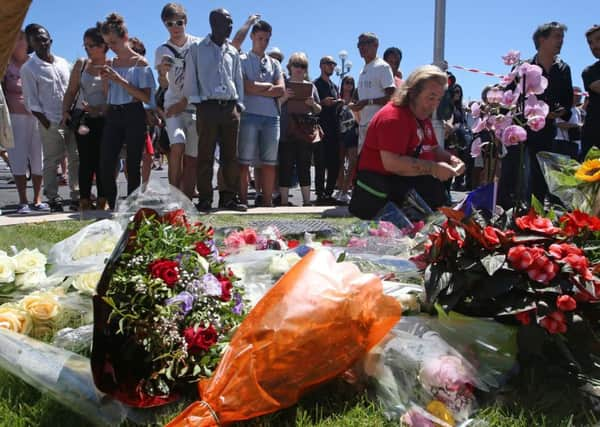Why we need to change our view of world security if we are to combat terror threat


At that time it was al-Qaida that was promoting and encouraging attacks in many parts of the world. We remembers the 7/7 attacks in London, the bombings at the Atocha rail terminal in Madrid and the assault on the Sari nightclub in Bali, but there were many others, including attacks in Tunisia, Morocco, Egypt, Jordan, Turkey, India, Pakistan and Indonesia.
Until early last year, al-Qaida’s successor, ISIS, was different as it was focused almost entirely on its new “caliphate” in northern Iraq and Syria, with little interest in widening the war. That has changed in the wake of the intense US-led air war against ISIS in Iraq and Syria which started in 2014 but expanded hugely a little over a year ago. According to Pentagon sources this has so far killed around 30,000 ISIS supporters, even though there is scarcely any coverage in the western media.
Advertisement
Hide AdAdvertisement
Hide AdIt has had a major effect on ISIS and one of its responses has been to change its strategy and to engage in multiple attacks elsewhere, especially against western targets. By no means all of them are organised directly by ISIS and some individuals or small groups have been inspired to act independently.
We don’t yet have much idea of the motivations of the petty criminal who was responsible for the Nice massacre but it is highly likely that he was radicalised quite recently, quite probably in response to ISIS propaganda.
Using all kinds of social media, ISIS has been continually presenting itself as the guardian of “true” Islam under attack by the “crusader” forces of the West. It is a tactic that is hated and despised by the overwhelming majority of Muslims world-wide but strikes a chord sufficiently with a tiny minority to achieve its effect.
The aim is two-fold – to show the movement is still active and capable of taking to war to what it calls the far enemy and to work assiduously to stir up as much anti-Muslim bigotry, hatred and Islamophobia as it possibly can.
Advertisement
Hide AdAdvertisement
Hide AdAmong the many attacks have been the killing of tourists at the Bardo museum in Tunis, the attacks on many holiday makers, mostly British, in the resort of Sousse in northern Tunisia, the destruction of the Russian tourist jet after take-off from Sinai.
More recently there have been the attacks in Istanbul and Dhaka, and now we have had the Nice atrocity. There have been some “lone wolf” actions such as the gun attacks in the United States – in San Bernardino in California and the Pulse nightclub in Orlando, Florida, and the Nice attack seems to be of that kind.
Over all of this is the worry that after 15 years of war against al-Qaida, ISIS and other radical movements the threat levels remain high and no one seems to be able to suggest alternative ways forward. This, itself, is of great concern but, by a grim coincidence a new study from Bradford’s Peace Studies Department, Irregular War, was published just hours before the Nice attack.
The product of two years of work, it takes a much broader look at the significance of ISIS for international security and concludes that the so-called “war on terror” is just one part of a much wider change in world security that will increasingly relate to broad economic and environmental trends.
Advertisement
Hide AdAdvertisement
Hide AdIn this analysis, ISIS, al Qaida, Boko Haram, Al Shabab and the Taliban are all separate manifestations of a new non-state dynamic which is now driving international conflict through asymmetric and hybrid warfare, but their real significance is much more fundamental.
The underlying drivers of future conflict are far more than the growth of extreme Islamist movements. They stem from a flawed world economic system that may be producing economic growth but is also resulting in greater inequalities and marginalisation, combined with the onset of persistent global environmental limits, especially climate disruption.
The report argues that we need radically to change our understanding of security, a change that is possible but requires vision and commitment. There is time to do this, but the next two decades are crucial if we are to move towards a more peaceful world.
The Nice attack is a grim reminder of just how dangerous, extreme movements can be, and how important it is to find ways of countering them.
Prof Paul Rogers works at Bradford University’s peace studies department. His report Irregular War: ISIS and the New Threats from the Margins is published by IB Tauris.